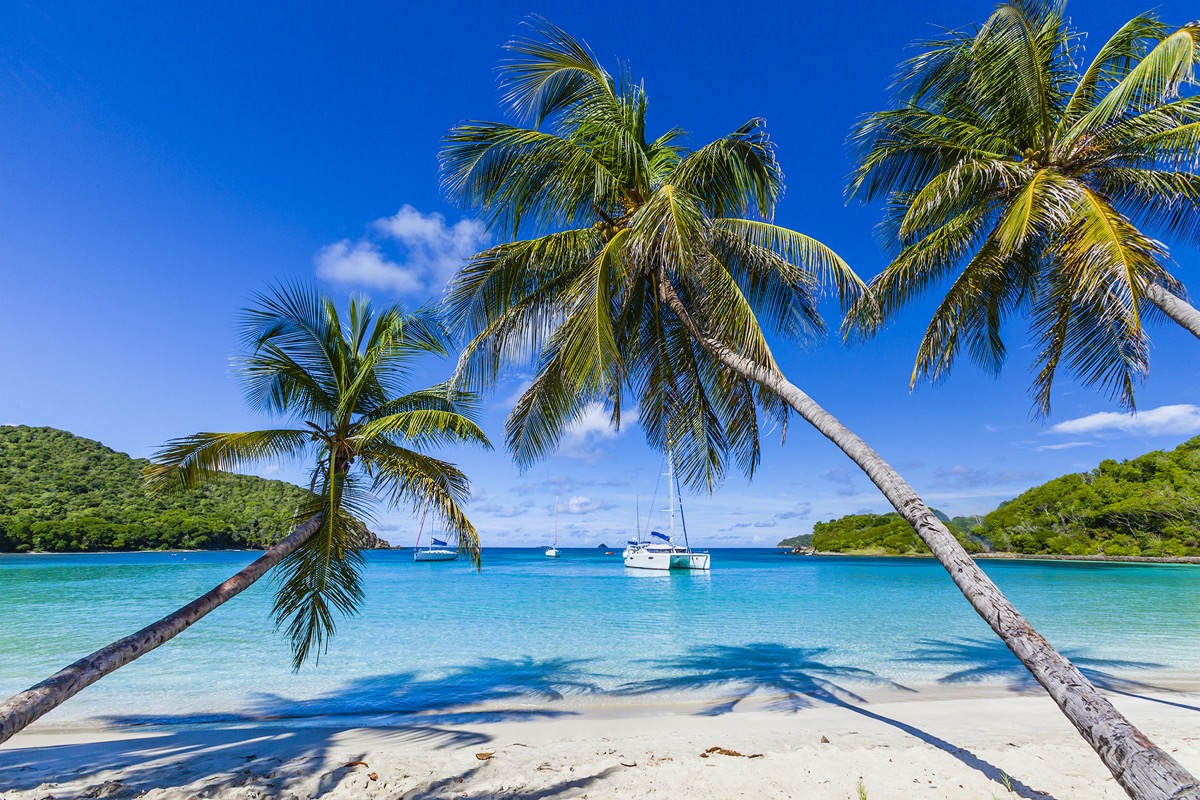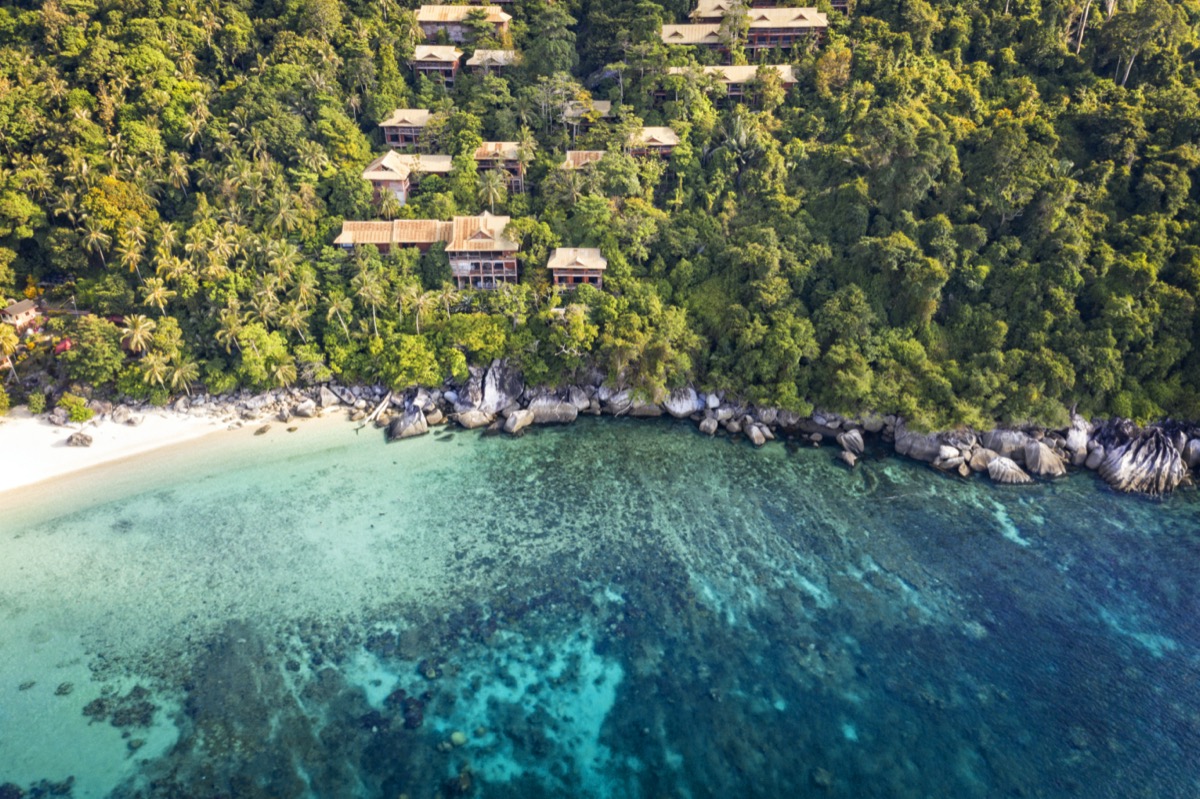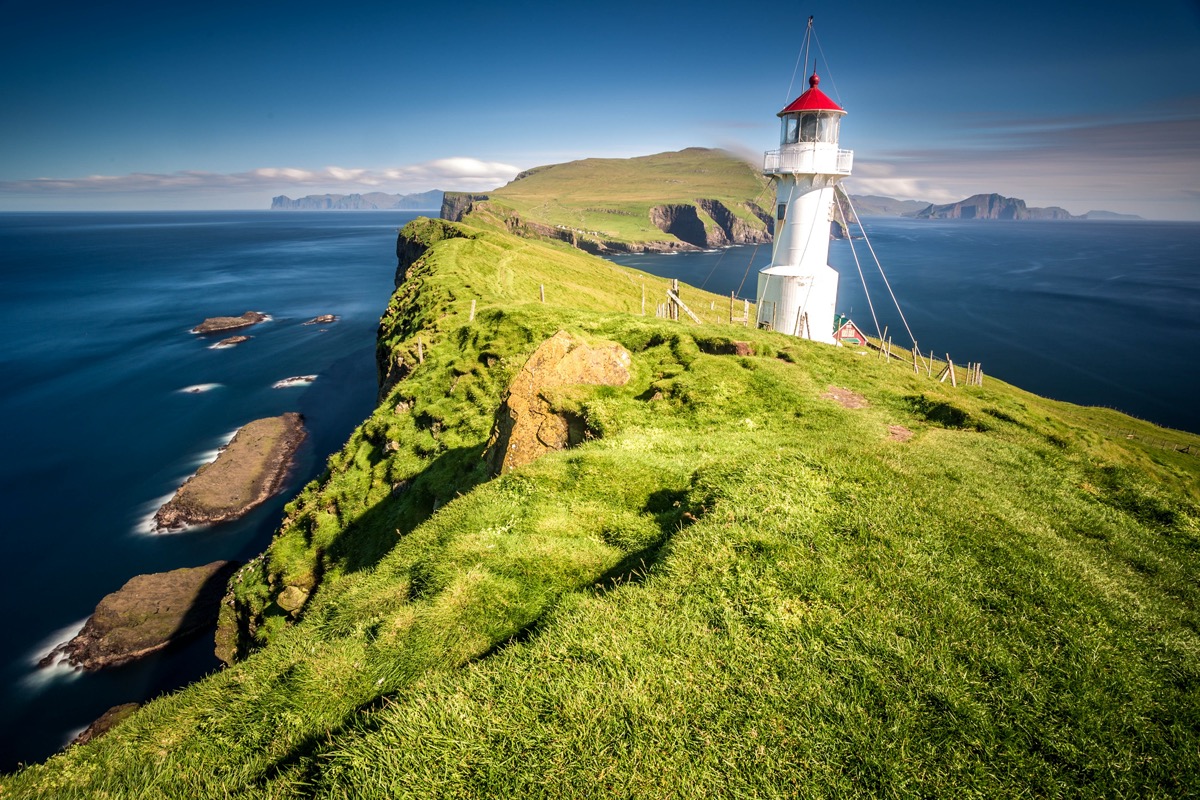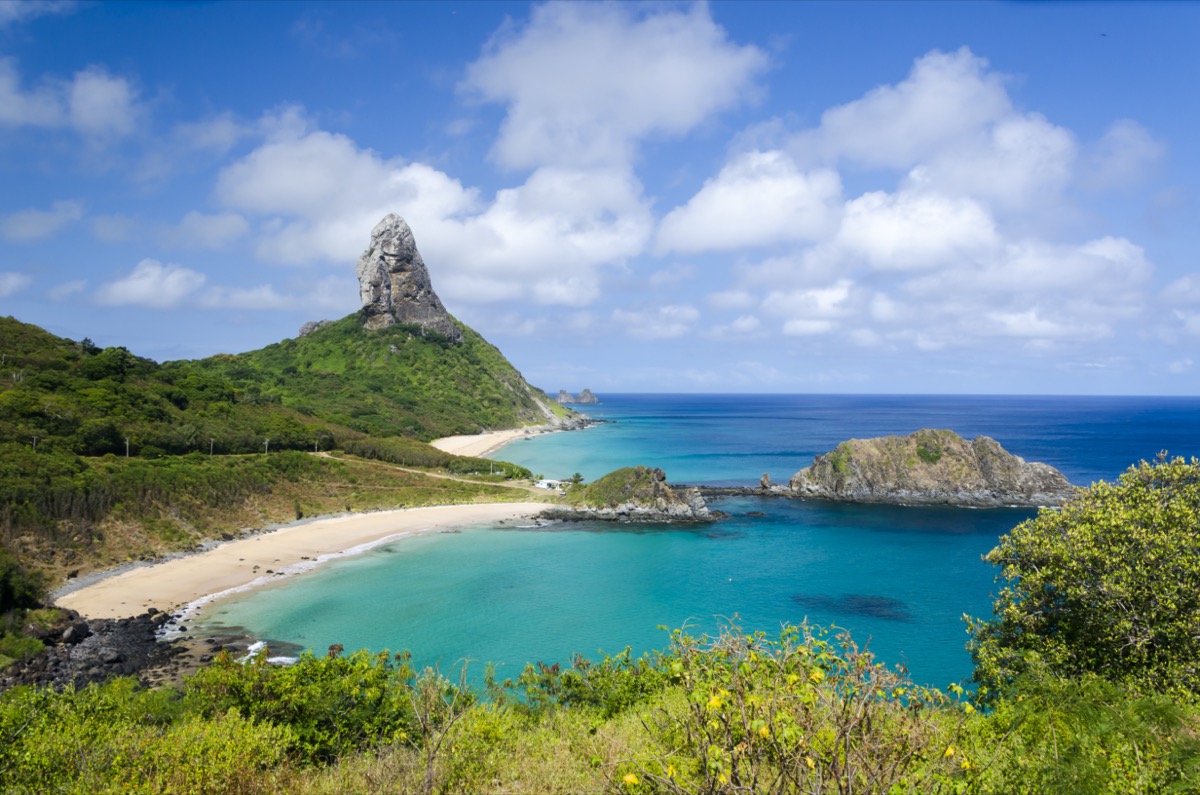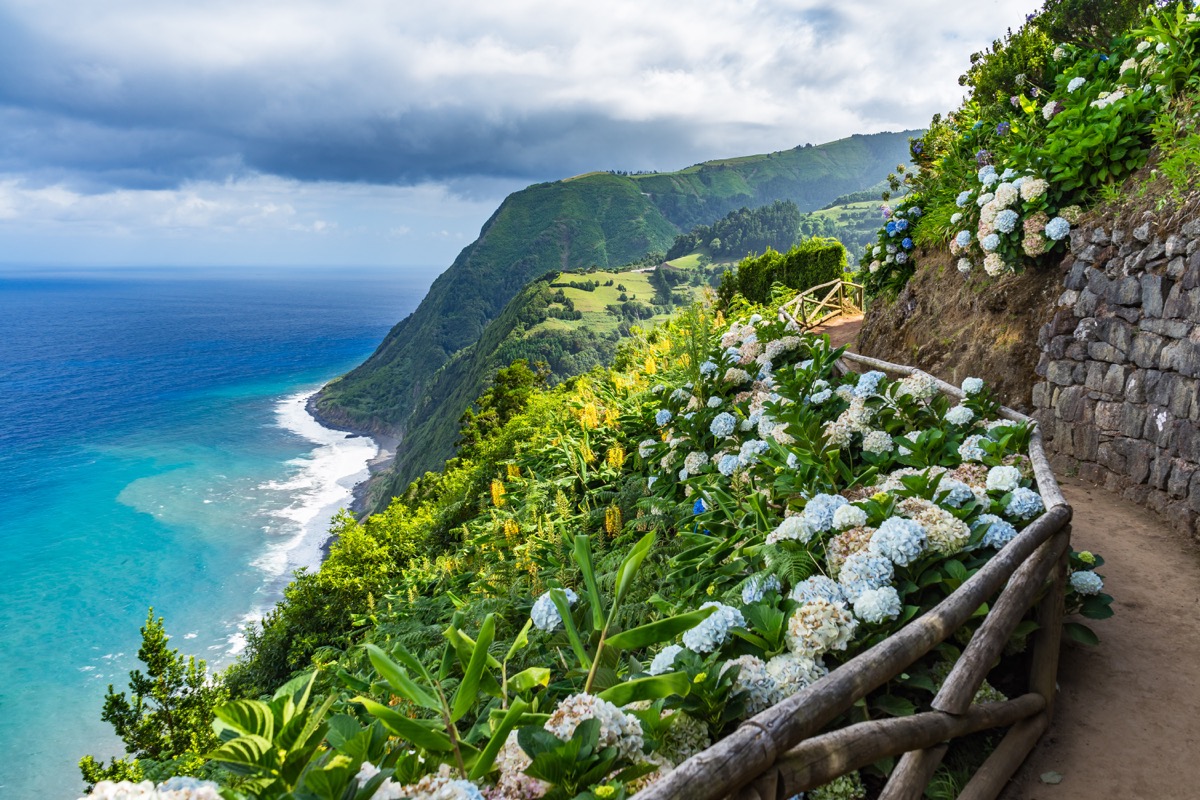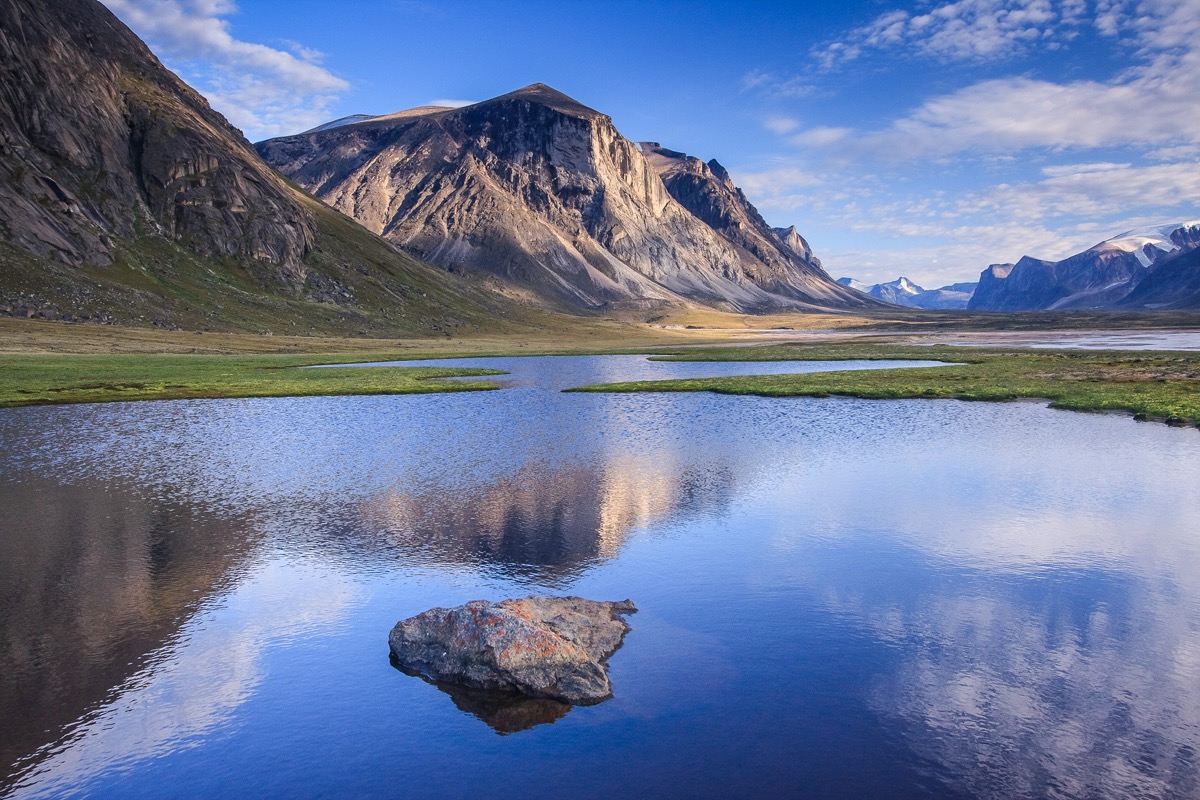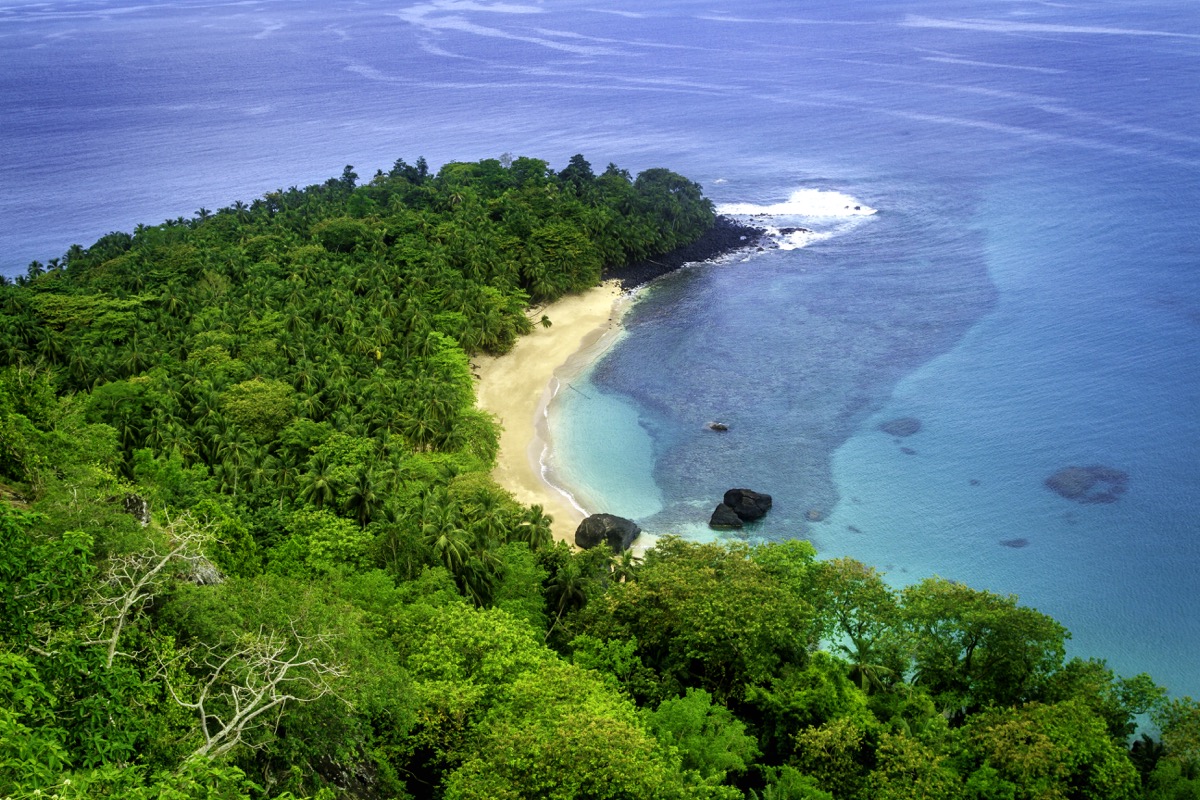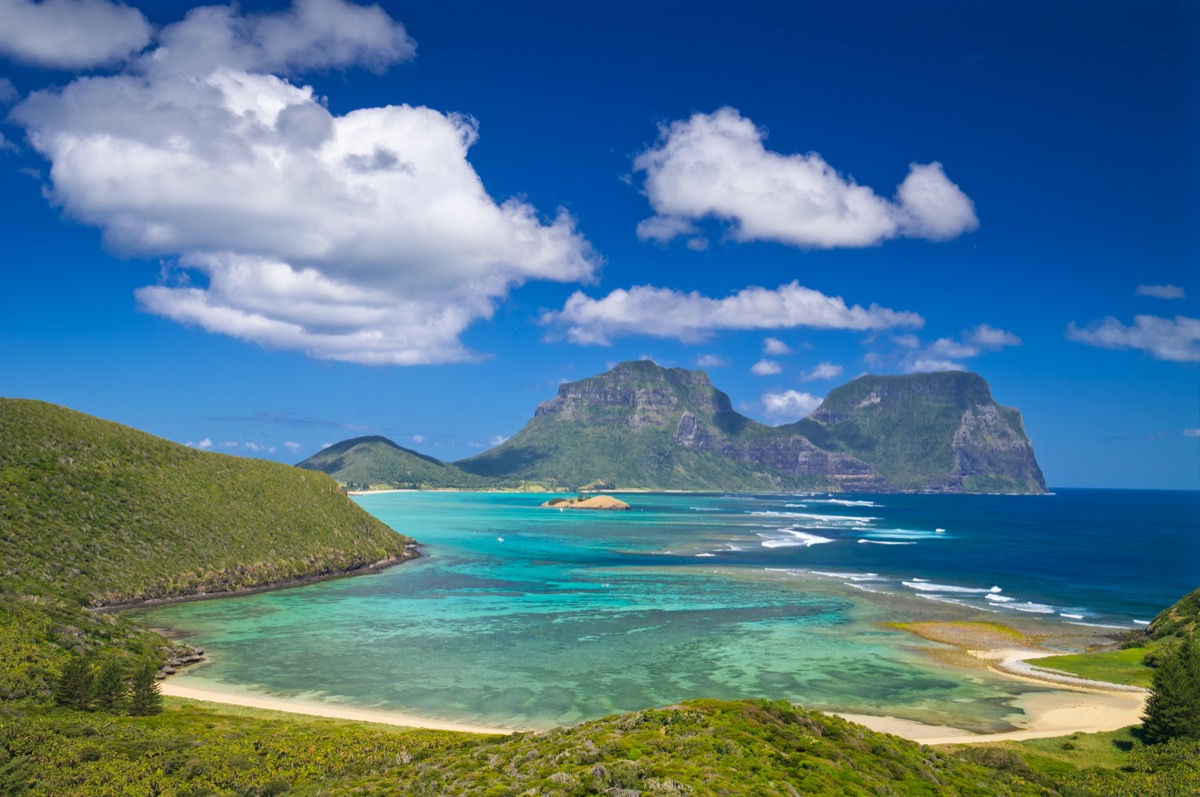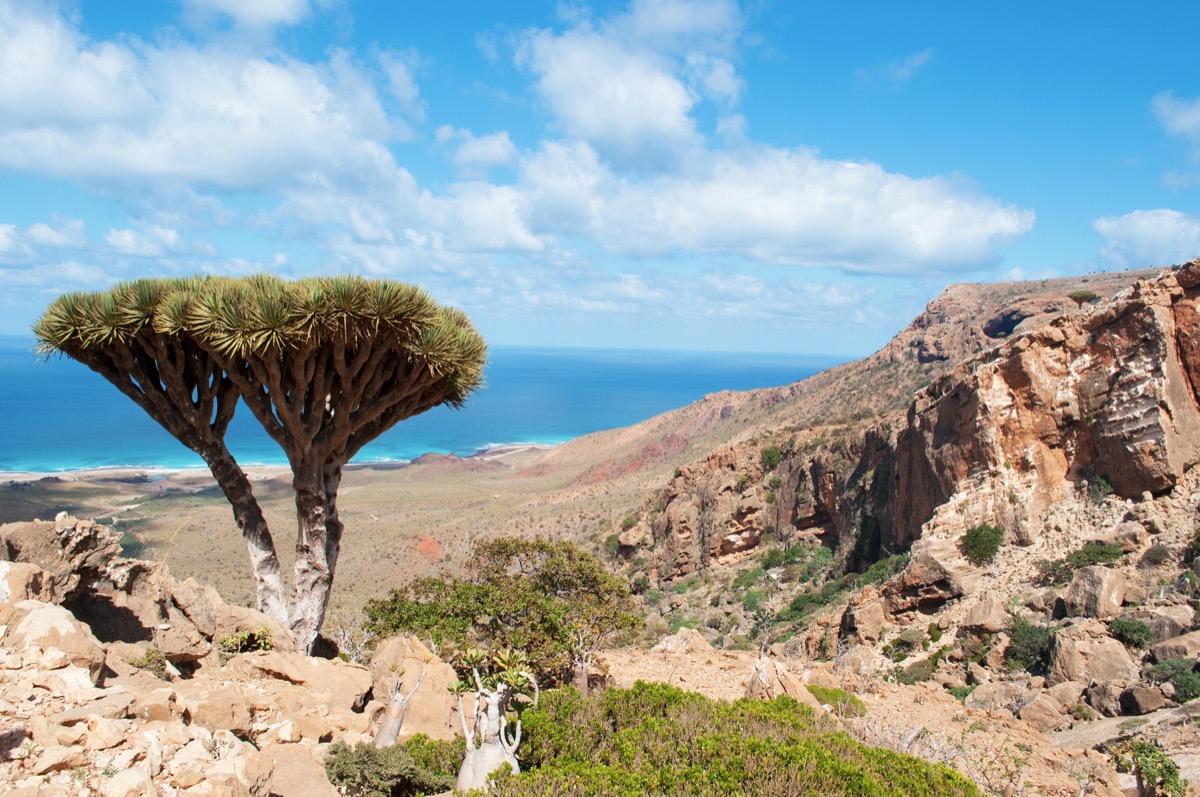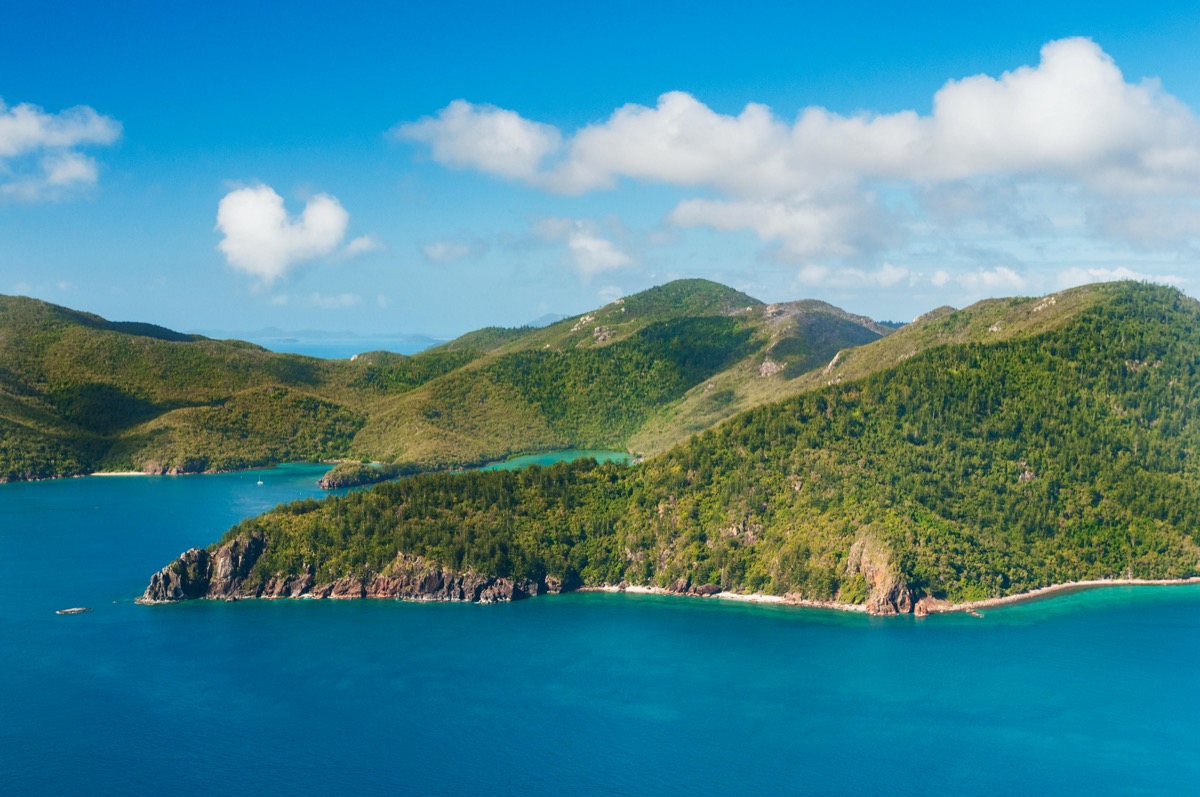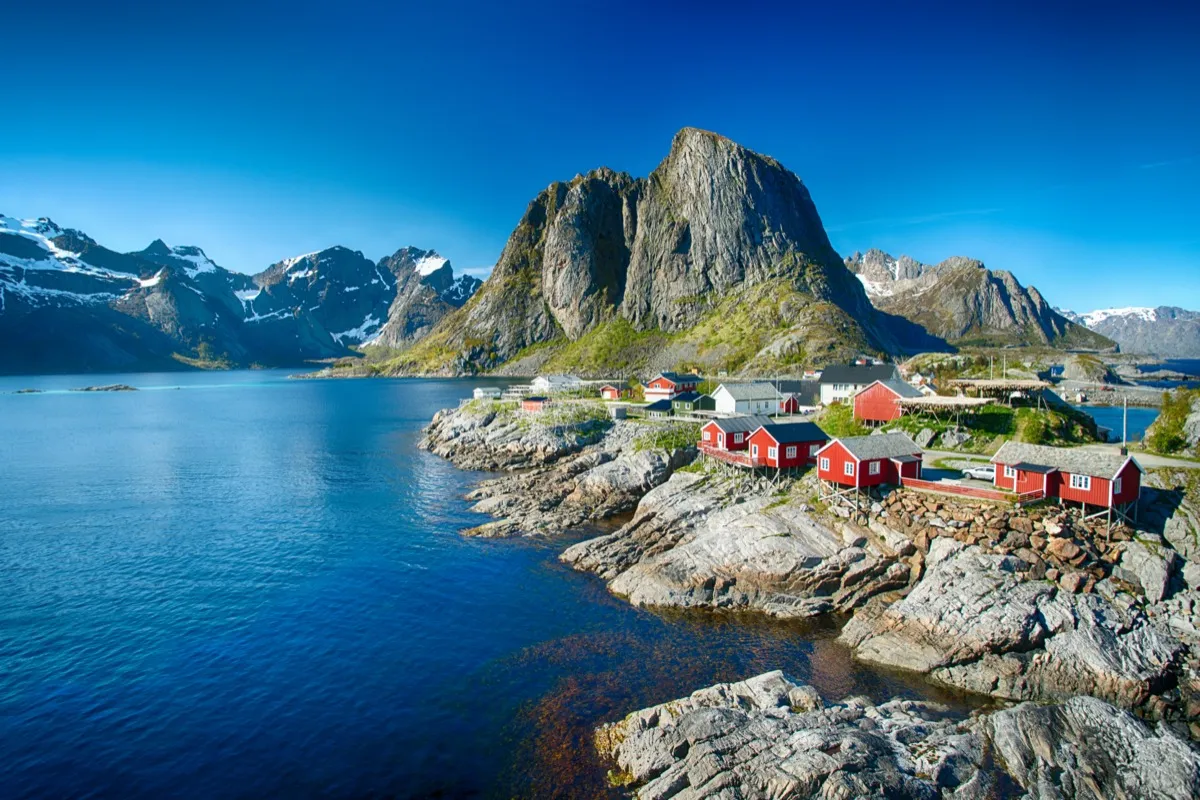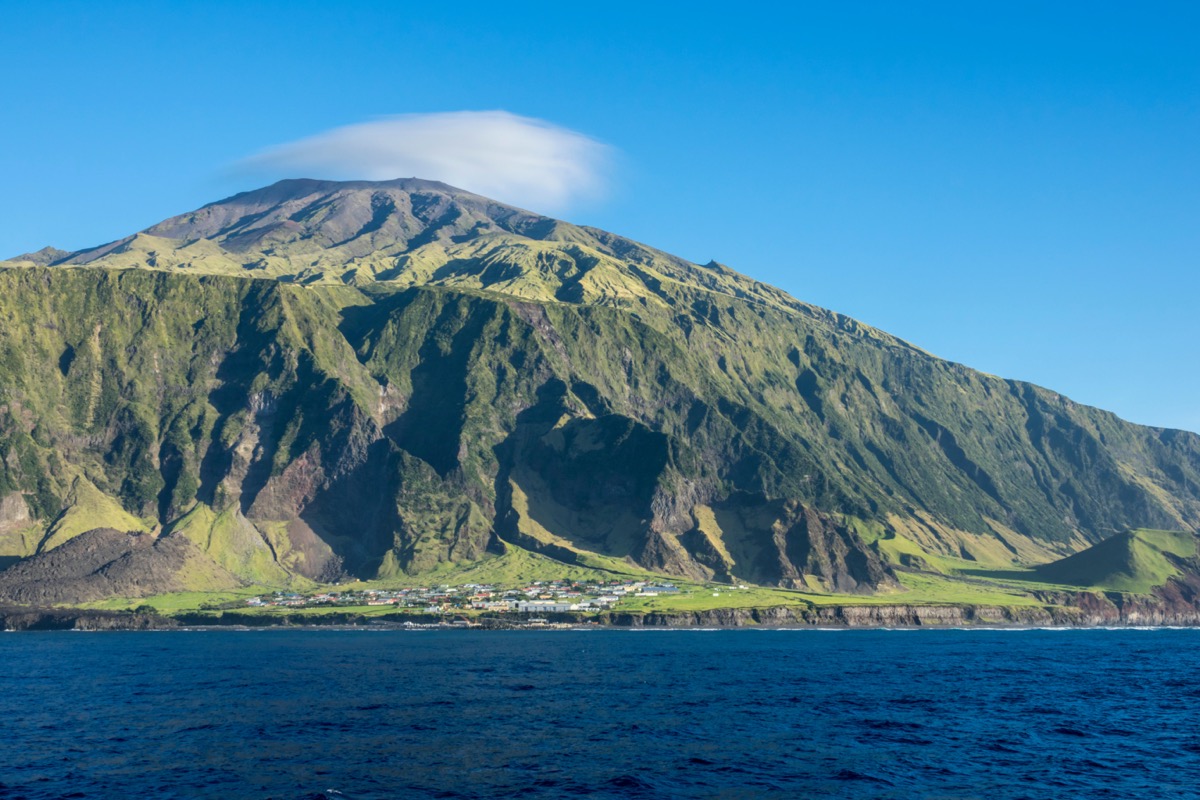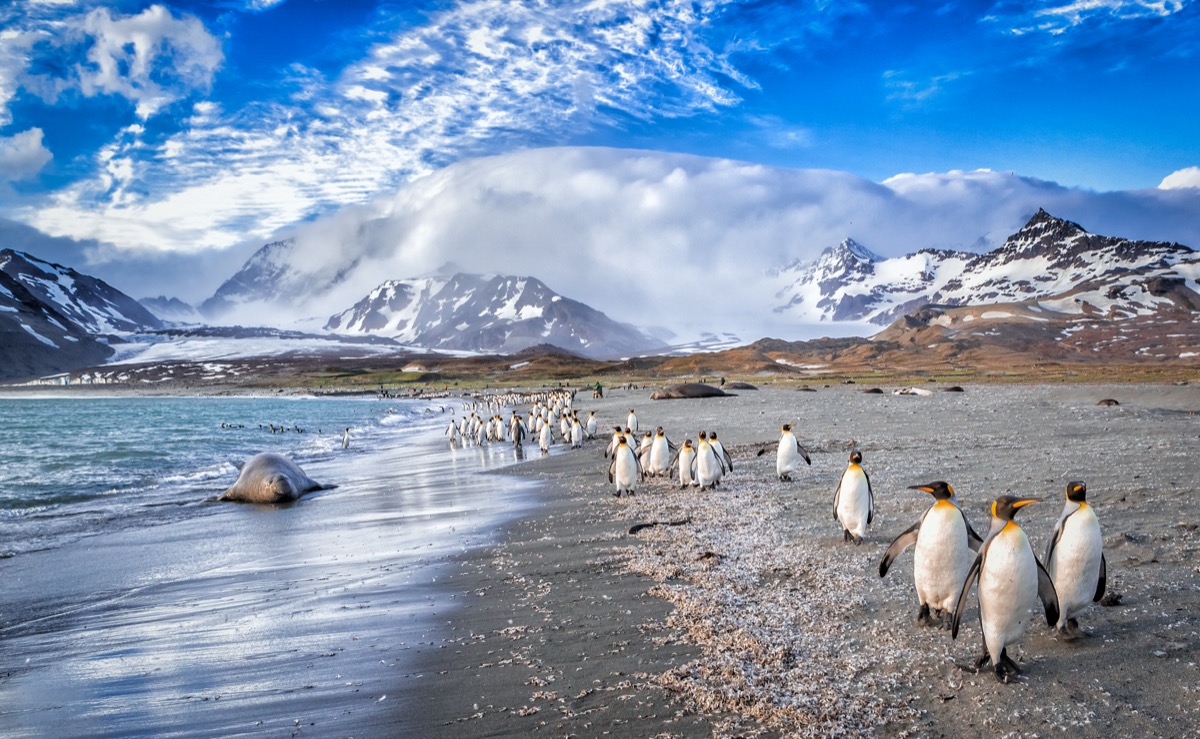The tiny island of Mayreau is the smallest of the Grenadines (at least of the inhabited ones, anway), covering about half a square mile. But despite its size, it’s still a paradise. Mayreau is full of quintessential Caribbean splendor, from the beaches to the local island watering hole. There’s just one hotel and one guesthouse on the island, meaning you won’t have to fight any vacationers off for the best poolside lounge chairs. And for more under-the-radar atolls, check out the 13 Secret Caribbean Islands You’ve Never Heard Of. If you’re looking for your perfect castaway caye that has just enough infrastructure to make your life nice and easy, Pulau Tioman, or Tioman Island, is your destination. The incredibly laid-back island has a smattering of villages with resorts, cafés, and dive shops, but you’ll primarily be spending your time in the water (you’ll find some of Malaysia’s best diving and snorkeling here), on a beach, or in the jungle on a trek to a secluded waterfall. The mist-shrouded Faroe Islands comprise 18 mountainous isles in the middle of the turbulent North Atlantic, somewhere between Scotland, Norway, and Iceland. A land of grass-roofed houses, cascading waterfalls, and towering sea cliffs, the autonomous Danish territory has an off-the-beaten-path gem: its westernmost island of Mykines. Only accessible by boat or helicopter, Mykines is famous for a hilly hike to a lighthouse that takes you right through the heart of a puffin breeding ground. Visit in the summer to be surrounded by thousands of the adorable little seabirds. Ready to jump ship and try the island life for good? Check out the 7 Breathtaking Islands That Will Pay You to Move. While most travelers to Brazil head for Rio de Janeiro or São Paulo, they’ll be missing out on some of the country’s most incredible natural treasures, like the Fernando de Noronha archipelago. The cluster of 21 volcanic islands, which is a UNESCO World Heritage Site, is set 220 miles off the coast of Brazil in the Atlantic Ocean and is renowned for breathtaking beaches, dramatic volcanic peaks, and vibrant ecosystems of land and marine wildlife. While each of the nine islands of the Azores, a Portuguese autonomous region in the North Atlantic, are quite stunning, Corvo, Graciosa, and Flores are perhaps the best for those trying to get away from it all. Each of the three are UNESCO Biosphere Reserves, which means their rich ecosystems teeming with wildlife are well protected. If you’d prefer to hike rather than birdwatch, Corvo, in particular, has some fascinating geology. You can climb up to the Miradouro do Caldeirão, a scenic viewpoint overlooking the old caldera of the volcanic island. Baffin Island in the territory of Nunavut is Canada’s largest atoll, covering nearly 200,000 square miles, the majority of which is above the Arctic Circle. As such, its vast and dramatic landscapes are subject to polar night (and the Northern Lights!) and midnight sun. Many travelers visit Baffin for its two national parks, Auyuittuq and Sirmilik, where you can partake in activities like skiing, kayaking, and wildlife spotting. And for more stunning sights, check out the 13 Secret Islands in the U.S. You Never Knew Existed. Tucked into the Gulf of Guinea, off the coast of Equatorial Guinea, the tiny nation of São Tomé and Príncipe has just two islands—you can probably guess their names. Of the two, Príncipe is the one you’ll want to visit for an off-the-grid adventure, as it’s known for lush jungles fringed with white-sand beaches and filled with endemic flora and fauna. The island has another claim to fame: It’s the site of the 1919 Eddington experiment, which helped support Albert Einstein’s theory of General Relativity. It’s all about nature on Lord Howe Island, a remote volcanic remnant some 370 miles off the coast of New South Wales, Australia. Just 400 visitors are allowed to be on the island at any given time, ensuring that the Lord Howe Island Marine Park, a spectacular diving locale, remains pristine. While you’re out there, don’t miss an excursion to Ball’s Pyramid, a towering spit of land that happens to be the world’s tallest sea stack at 1,844 feet high. And if you want to go for a dip, check out these 21 Swimming Holes So Magical You Won’t Believe They’re in the U.S. You might not have heard of the island of Socotra, but you’ve likely seen a picture of its famous dragon’s blood trees, which produce a bright red sap used as medicine and dye. Part of the Socotra archipelago between the Gulf of Aden and the Arabian Sea, Socotra is a UNESCO World Heritage Site with an impressive number of endemic species. UNESCO reports, “37 percent of Socotra’s 825 plant species, 90 percent of its reptile species, and 95 percent of its land snail species do not occur anywhere else in the world.” Queensland’s 74 Whitsunday Islands are legendary, and for good reason. They’re gobsmackingly beautiful between the powdery beaches, turquoise waters, and a little natural attraction called the Great Barrier Reef. While hundreds of thousands of people visit the Whitsundays each year, there are still a number that feel like unspoiled paradise, Hook Island, among them. The rugged 22-square-mile cay is primarily a national park, with forests, fjords, and even a rainy-season waterfall, not to mention excellent snorkeling and diving. It also has an archaeological site filled with rock wall paintings by the Ngaro Aboriginal people. If you thought the fjords of Hook Island were impressive, wait till you see the ones in the Lofoten archipelago. The Norwegian island group is far above the Arctic Circle, near the mainland city of Tromsø, and like the majority of the country, it has some pretty impressive landscapes—ones that can regularly be illuminated by the Aurora Borealis during the fall, winter, and spring. The Lofoten Islands are actually accessible by car, thanks to a series of road bridges, but that also brings in a number of tourists, though it’s fairly easy to retreat into more remote areas. Still want fewer crowds? Try the Svalbard archipelago, some 700 miles north.ae0fcc31ae342fd3a1346ebb1f342fcb Located in the middle of the South Atlantic, the island of Tristan da Cunha shares its name with the archipelago, which is the most remote inhabited archipelago in the world. The closest mainland city is Cape Town, South Africa, which is roughly 1,350 miles away—a week-long journey by ship. That voyage is currently the only way to get to the island because it doesn’t have space for a long-enough runway capable of landing a plane. The 250 or so islanders, who are British Overseas Territories citizens, often spend their days fishing, growing potatoes, and enjoying a pint at the local pub. Though the sub-Antarctic island of South Georgia doesn’t technically have a permanent population, it does have a famous “resident” that you can visit year-round. The British Overseas Territory is home to the final resting place of iconic explorer Ernest Shackleton, whose ill-fated expedition to Antarctica is one of most incredible survival stories of all time. South Georgia also has quite a population of non-human residents that attract tourists visiting on cruise ships: It’s a haven for penguins, seals, and albatross, among other species. And for more jaw-dropping destinations, check out the 17 Most Exotic Off-the-Grid Hotels in the World.
